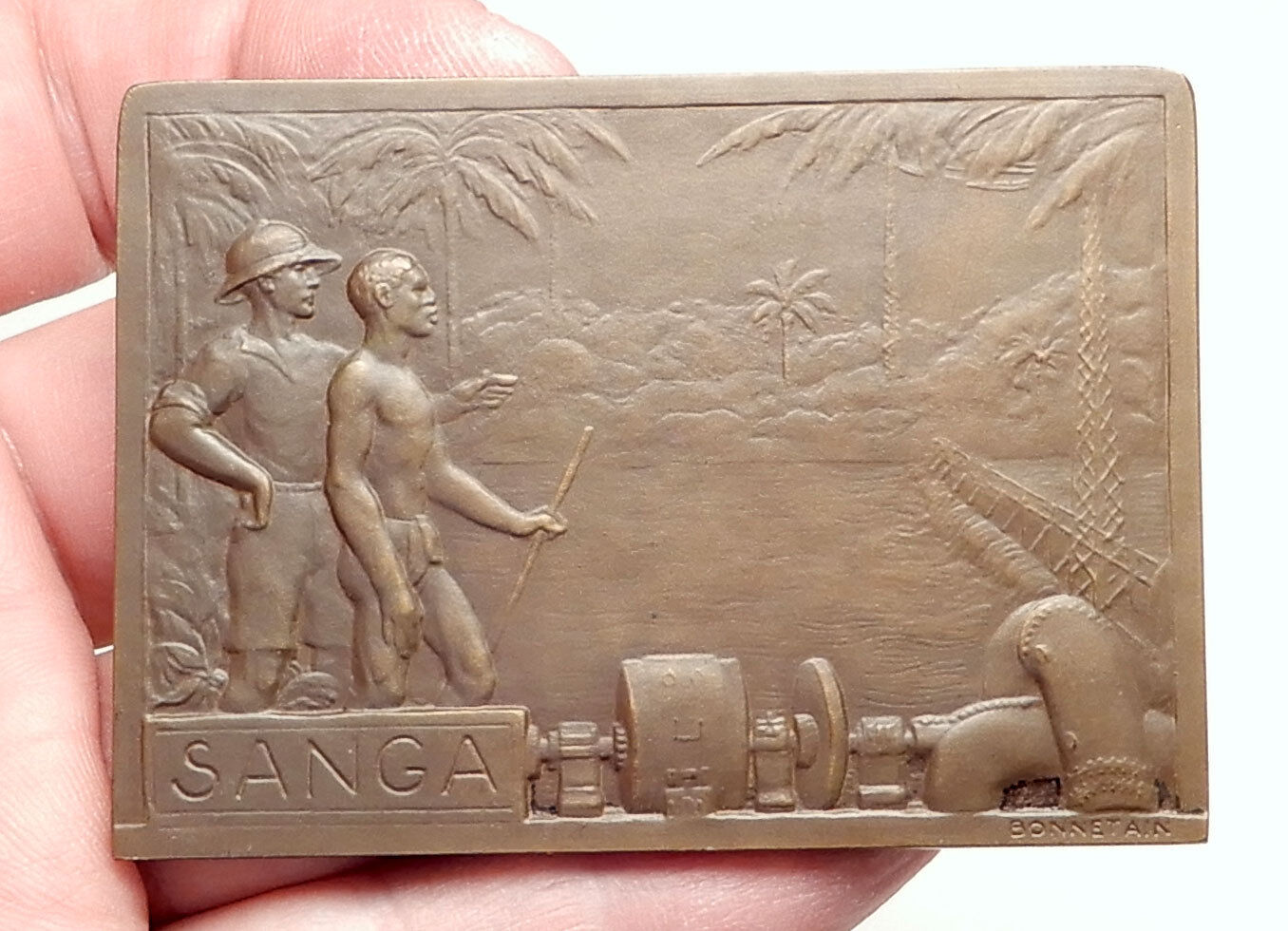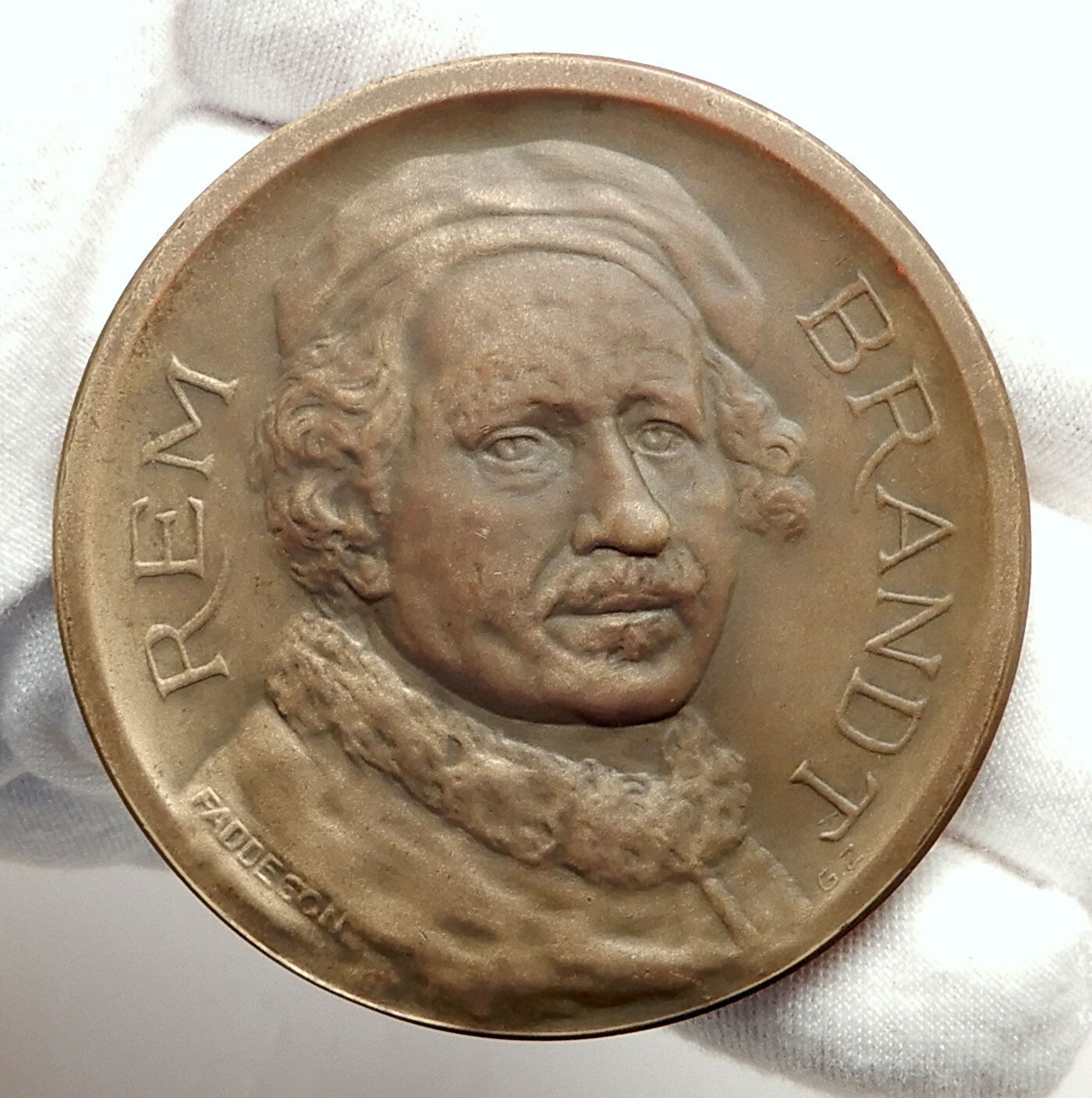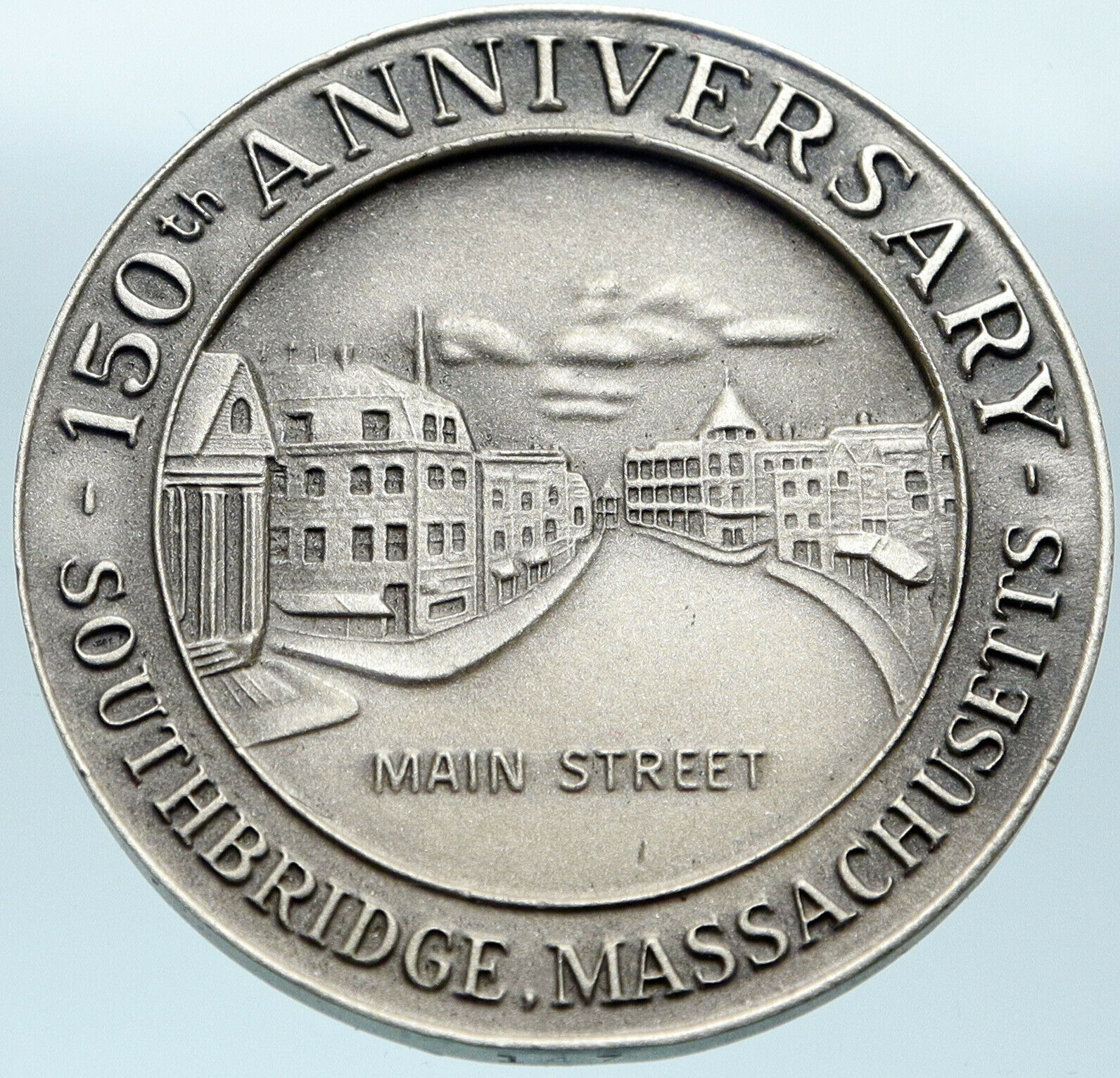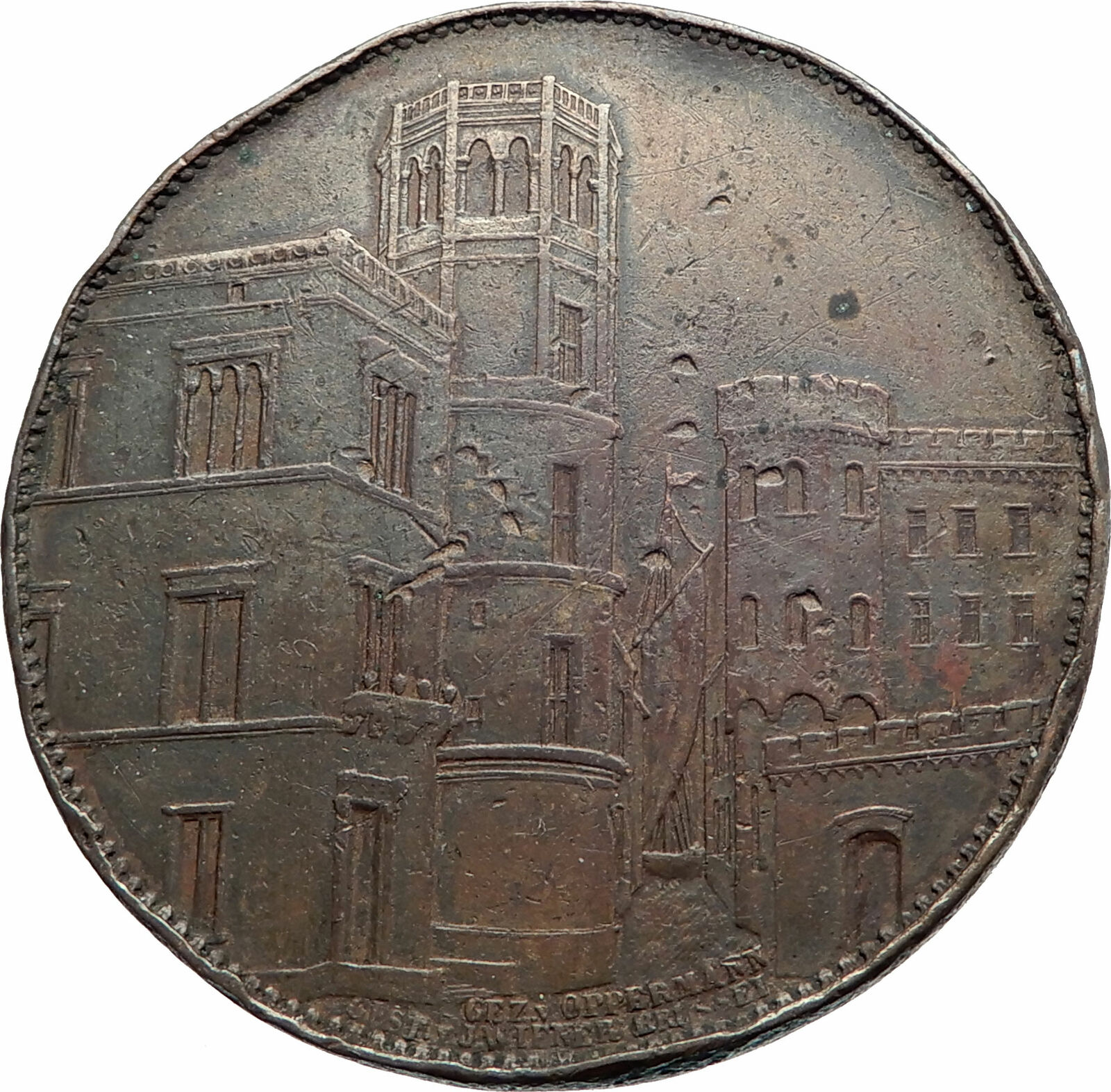|
Israel
Israel Egypt Peace Treaty
1979 Silver Medal 44mm (47.70 grams) 0.935 Silver (1.434 oz. ASW)
Reference: ICMC# 25068455, Sm-616
ונתתי שלום בארץ ויקרא כו’ו’ I WILL GIVE PEACE IN THE LAND وأجعل سلامآ في
الارض LEVITICUS 26,6, The sun, symbol, of hope, shines over Mt. Sinai.
חוזה שלום ישראל-מצרים ISRAEL-EGYPT PEACE TREATY ירושלים-קהיר-ואשינגטון
JERUSALEM-CAIRO-WASHINGTON 1979 . ١٣٩٩ . תשל”ט, In the center, a square formed
by the word “Shalom” in Hebrew, Arabic, and English.
Edge Lettering:
935 STERLING STATE OF ISRAEL
You are bidding on the exact item pictured, provided with a Certificate of Authenticity and Lifetime Guarantee of Authenticity.
_-_USNWR.jpg/300px-Sadat_Carter_Begin_handshake_(cropped)_-_USNWR.jpg) The Egypt-Israel Peace Treaty (Arabic: معاهدة السلام المصرية الإسرائيلية, Mu`āhadat as-Salām al-Misrīyah al-‘Isrā’īlīyah; Hebrew: הסכם השלום בין ישראל למצרים, Heskem HaShalom Bein Yisrael LeMitzrayim) was signed in Washington, D.C., United States on 26 March 1979, following the 1978 Camp David Accords. The Egypt-Israel treaty was signed by Egyptian president Anwar Sadat and Israeli prime minister Menachem Begin, and witnessed by United States president Jimmy Carter. The Egypt-Israel Peace Treaty (Arabic: معاهدة السلام المصرية الإسرائيلية, Mu`āhadat as-Salām al-Misrīyah al-‘Isrā’īlīyah; Hebrew: הסכם השלום בין ישראל למצרים, Heskem HaShalom Bein Yisrael LeMitzrayim) was signed in Washington, D.C., United States on 26 March 1979, following the 1978 Camp David Accords. The Egypt-Israel treaty was signed by Egyptian president Anwar Sadat and Israeli prime minister Menachem Begin, and witnessed by United States president Jimmy Carter.
The peace treaty between Egypt and Israel was signed 16 months after Egyptian president Anwar Sadat’s visit to Israel in 1977 after intense negotiation. The main features of the treaty were mutual recognition, cessation of the state of war that had existed since the 1948 Arab-Israeli War, normalization of relations and the complete withdrawal by Israel of its armed forces and civilians from the Sinai Peninsula which Israel had captured during the Six-Day War in 1967. Egypt agreed to leave the area demilitarized. The agreement also provided for the free passage of Israeli ships through the Suez Canal, and recognition of the Strait of Tiran and the Gulf of Aqaba as international waterways.
The agreement notably made Egypt the first Arab state to officially recognize Israel.
Normalization
The normalization of relations between Israel and Egypt went into effect in January 1980. Ambassadors were exchanged in February. The boycott laws were repealed by Egypt’s parliament the same month, and some trade began to develop, albeit less than Israel had hoped for. In March 1980 regular airline flights were inaugurated. Egypt also began supplying Israel with crude oil.
Demilitarization of Sinai
On 18 May 1981, the President of the UN Security Council indicated that the United Nations would be unable to provide an observation force, due to the threat of a veto of the motion by the Soviet Union. As a result of the impasse, Egypt, Israel and the United States opened negotiations to set up a peacekeeping organization outside the framework of the UN. On 3 August 1981, the Protocol to the Treaty of Peace was signed, establishing the Multinational Force and Observers (MFO). This observation force monitors both parties to ensure compliance with the treaty.
Agreed Activities Mechanism
 The peace treaty includes a stipulation, called the Agreed Activities Mechanism, that allows Egypt and Israel to jointly alter the arrangements of Egyptian troops in the Sinai without having to officially review the treaty itself. Israel has allowed Egypt to deploy forces to central and eastern Sinai out of mutual security concerns, such as the presence of jihadi militant groups in these areas. These alterations are coordinated through the MFO. The peace treaty includes a stipulation, called the Agreed Activities Mechanism, that allows Egypt and Israel to jointly alter the arrangements of Egyptian troops in the Sinai without having to officially review the treaty itself. Israel has allowed Egypt to deploy forces to central and eastern Sinai out of mutual security concerns, such as the presence of jihadi militant groups in these areas. These alterations are coordinated through the MFO.
In January 2011, during widespread protests by Egyptians against their government, Israel agreed to allow Egypt to move several hundred troops into the Sinai Peninsula for the first time since the peace treaty was signed. With Israel’s agreement, Egypt moved two battalions, about 800 soldiers, into the Sharm el-Sheikh area on Sinai’s southern tip, far from Israel.
In August 2012, Israel agreed that Egypt could deploy additional forces, including attack helicopters, in the northern Sinai to combat militants who had carried out an attack on Egyptian border guards that left 16 dead. Later that month, Egypt moved additional heavy weaponry into the demilitarized zone without Israeli approval, in violation of the peace treaty terms. Egypt said that the deployment of these troops and weapons was in keeping with agreements reached with Israel in 2011. Israel reportedly asked the United States to mediate this dispute. Shortly thereafter, Egyptian defense minister Abdel Fattah el-Sisi reportedly assured his Israeli counterpart, Ehud Barak, that Egypt was committed to maintaining the 1979 Camp David peace treaty with Israel.
In July 2013, after a number of violent incidents in the Sinai Peninsula, Israel agreed to the deployment of additional Egyptian troops.
International reaction
This treaty was received with enormous controversy across the Arab world, where it was condemned and considered a stab in the back. The sense of outrage was particularly strong amongst Palestinians, with the leader of the Palestine Liberation Organization, Yasser Arafat, stating: “Let them sign what they like. False peace will not last”. On the other hand, the treaty led both Egyptian president Anwar Sadat and Israeli prime minister Menachem Begin to share the 1978 Nobel Peace Prize for bringing peace between the two states. However, as a result of the treaty, Egypt was suspended from the Arab League in 1979-1989, and Sadat was assassinated on 6 October 1981 by members of the Egyptian Islamic Jihad.
Syrian President Hafez al-Assad severed all relations with Egypt after the signing of the peace deal, and diplomatic relations were not re-established until 2005, when Egypt once again enjoyed warm relations with Syria under the rule of Bashar al-Assad.
Aftermath
The peace between Egypt and Israel has lasted since the treaty went into effect, and Egypt has become an important strategic partner of Israel. Binyamin Ben-Eliezer, a former Israeli defense minister known for his close ties to Egyptian officials, has stated that “Egypt is not only our closest friend in the region, the co-operation between us goes beyond the strategic.”
As part of the agreement, the U.S. began economic and military aid to Egypt, and political backing for its subsequent governments. From the Camp David peace accords in 1978 until 2000, the United States has subsidized Egypt’s armed forces with over $38 billion worth of aid. Egypt receives about $1.3 billion annually.
Nevertheless, the peace is often described as a “cold peace”, with many in Egypt skeptical about its effectiveness.[16][17] The Arab-Israeli conflict has kept relations cool. According to CNSNews.com, the Egyptian army conducted simulated military exercises against an “enemy” Israel in 2008.[19][better source needed]
The Egyptian revolution of 2011 led to fears in Israel about the future of the treaty, although the Israeli prime minister Benjamin Netanyahu stated that he expected any new Egyptian government to keep the peace treaty with Israel, as it has served both countries well. After the Egyptian Army took power on 11 February 2011, it announced that Egypt would continue to abide by all its international and regional treaties. However, Ayman Nour, an influential Egyptian opposition figure and likely presidential candidate called for Cairo’s peace treaty with Israel to be “reassessed”. On 15 September 2011, the then Egyptian prime minister Essam Sharaf said that “A peace deal with Israel was not sacred”. Rashad al-Bayumi, the deputy chief of Egypt’s largest party, the Muslim Brotherhood, said that they would not recognize Israel and that the treaty could be put to a referendum, emphasizing that while they respected all of their international agreements, they “had the right to review the peace deal” and that the Egyptian people “have yet to speak their mind”. Representatives of the group had told U.S. diplomats that they did not intend to revoke the treaty.
Addressing Israeli concerns on 31 July 2014, Egyptian president Abdel Fattah el-Sisi pledged to continue the peace with Israel.
 Israel (/ˈɪzriəl, ˈɪzreɪəl/; Hebrew: יִשְׂרָאֵל; Arabic: إِسْرَائِيل), officially the State of Israel, is a country in the Middle East, on the southeastern shore of the Mediterranean Sea and the northern shore of the Red Sea. It has land borders with Lebanon to the north, Syria to the northeast, Jordan on the east, the Palestinian territories of the West Bank and Gaza Strip to the east and west, respectively, and Egypt to the southwest. The country contains geographically diverse features within its relatively small area. Israel’s economic and technological center is Tel Aviv, while its seat of government and proclaimed capital is Jerusalem, although the state’s sovereignty over Jerusalem has only partial recognition. Israel (/ˈɪzriəl, ˈɪzreɪəl/; Hebrew: יִשְׂרָאֵל; Arabic: إِسْرَائِيل), officially the State of Israel, is a country in the Middle East, on the southeastern shore of the Mediterranean Sea and the northern shore of the Red Sea. It has land borders with Lebanon to the north, Syria to the northeast, Jordan on the east, the Palestinian territories of the West Bank and Gaza Strip to the east and west, respectively, and Egypt to the southwest. The country contains geographically diverse features within its relatively small area. Israel’s economic and technological center is Tel Aviv, while its seat of government and proclaimed capital is Jerusalem, although the state’s sovereignty over Jerusalem has only partial recognition.

Israel has evidence of the earliest migration of hominids out of Africa. Canaanite tribes are archaeologically attested since the Middle Bronze Age, while the Kingdoms of Israel and Judah emerged during the Iron Age. The Neo-Assyrian Empire destroyed Israel around 720 BCE. Judah was later conquered by the Babylonian, Persian and Hellenistic empires and had existed as Jewish autonomous provinces. The successful Maccabean Revolt led to an independent Hasmonean kingdom by 110 BCE, which in 63 BCE however became a client state of the Roman Republic that subsequently installed the Herodian dynasty in 37 BCE, and in 6 CE created the Roman province of Judea. Judea lasted as a Roman province until the failed Jewish revolts resulted in widespread destruction, expulsion of Jewish population and the renaming of the region from Iudaea to Syria Palaestina.[34] Jewish presence in the region has persisted to a certain extent over the centuries. In the 7th century the Levant was taken from the Byzantine Empire by the Arabs and remained in Muslim control until the First Crusade of 1099, followed by the Ayyubid conquest of 1187. The Mamluk Sultanate of Egypt extended its control over the Levant in the 13th century until its defeat by the Ottoman Empire in 1517. During the 19th century, national awakening among Jews led to the establishment of the Zionist movement in the diaspora followed by waves of immigration to Ottoman and later British Palestine.
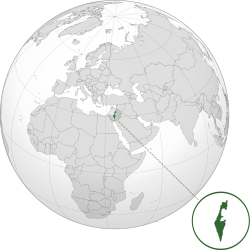 In 1947, the United Nations adopted a Partition Plan for Palestine recommending the creation of independent Arab and Jewish states and an internationalized Jerusalem. The plan was accepted by the Jewish Agency, and rejected by Arab leaders. The following year, the Jewish Agency declared the independence of the State of Israel, and the subsequent 1948 Arab-Israeli War saw Israel’s establishment over most of the former Mandate territory, while the West Bank and Gaza were held by neighboring Arab states. Israel has since fought several wars with Arab countries, and it has since 1967 occupied territories including the West Bank, Golan Heights and the Gaza Strip (still considered occupied after 2005 disengagement, although some legal experts dispute this claim).[41][42][43][fn 4] It extended its laws to the Golan Heights and East Jerusalem, but not the West Bank. Israel’s occupation of the Palestinian territories is the world’s longest military occupation in modern times.[fn 4][49] Efforts to resolve the Israeli-Palestinian conflict have not resulted in a final peace agreement. However, peace treaties between Israel and both Egypt and Jordan have been signed. In 1947, the United Nations adopted a Partition Plan for Palestine recommending the creation of independent Arab and Jewish states and an internationalized Jerusalem. The plan was accepted by the Jewish Agency, and rejected by Arab leaders. The following year, the Jewish Agency declared the independence of the State of Israel, and the subsequent 1948 Arab-Israeli War saw Israel’s establishment over most of the former Mandate territory, while the West Bank and Gaza were held by neighboring Arab states. Israel has since fought several wars with Arab countries, and it has since 1967 occupied territories including the West Bank, Golan Heights and the Gaza Strip (still considered occupied after 2005 disengagement, although some legal experts dispute this claim).[41][42][43][fn 4] It extended its laws to the Golan Heights and East Jerusalem, but not the West Bank. Israel’s occupation of the Palestinian territories is the world’s longest military occupation in modern times.[fn 4][49] Efforts to resolve the Israeli-Palestinian conflict have not resulted in a final peace agreement. However, peace treaties between Israel and both Egypt and Jordan have been signed.
In its Basic Laws, Israel defines itself as a Jewish and democratic state. Israel is a representative democracy[neutrality is disputed] with a parliamentary system, proportional representation and universal suffrage. The prime minister is head of government and the Knesset is the legislature. Israel is a developed country and an OECD member, with the 32nd-largest economy in the world by nominal gross domestic product as of 2017. The country benefits from a highly skilled workforce and is among the most educated countries in the world with one of the highest percentages of its citizens holding a tertiary education degree. Israel has the highest standard of living in the Middle East, and has one of the highest life expectancies in the world.
|





_-_USNWR.jpg/300px-Sadat_Carter_Begin_handshake_(cropped)_-_USNWR.jpg) The Egypt-Israel Peace Treaty (Arabic: معاهدة السلام المصرية الإسرائيلية, Mu`āhadat as-Salām al-Misrīyah al-‘Isrā’īlīyah; Hebrew: הסכם השלום בין ישראל למצרים, Heskem HaShalom Bein Yisrael LeMitzrayim) was signed in Washington, D.C., United States on 26 March 1979, following the 1978 Camp David Accords. The Egypt-Israel treaty was signed by Egyptian president Anwar Sadat and Israeli prime minister Menachem Begin, and witnessed by United States president Jimmy Carter.
The Egypt-Israel Peace Treaty (Arabic: معاهدة السلام المصرية الإسرائيلية, Mu`āhadat as-Salām al-Misrīyah al-‘Isrā’īlīyah; Hebrew: הסכם השלום בין ישראל למצרים, Heskem HaShalom Bein Yisrael LeMitzrayim) was signed in Washington, D.C., United States on 26 March 1979, following the 1978 Camp David Accords. The Egypt-Israel treaty was signed by Egyptian president Anwar Sadat and Israeli prime minister Menachem Begin, and witnessed by United States president Jimmy Carter. The peace treaty includes a stipulation, called the Agreed Activities Mechanism, that allows Egypt and Israel to jointly alter the arrangements of Egyptian troops in the Sinai without having to officially review the treaty itself. Israel has allowed Egypt to deploy forces to central and eastern Sinai out of mutual security concerns, such as the presence of jihadi militant groups in these areas. These alterations are coordinated through the MFO.
The peace treaty includes a stipulation, called the Agreed Activities Mechanism, that allows Egypt and Israel to jointly alter the arrangements of Egyptian troops in the Sinai without having to officially review the treaty itself. Israel has allowed Egypt to deploy forces to central and eastern Sinai out of mutual security concerns, such as the presence of jihadi militant groups in these areas. These alterations are coordinated through the MFO.  Israel (/ˈɪzriəl, ˈɪzreɪəl/; Hebrew: יִשְׂרָאֵל; Arabic: إِسْرَائِيل), officially the State of Israel, is a country in the Middle East, on the southeastern shore of the Mediterranean Sea and the northern shore of the Red Sea. It has land borders with Lebanon to the north, Syria to the northeast, Jordan on the east, the Palestinian territories of the West Bank and Gaza Strip to the east and west, respectively, and Egypt to the southwest. The country contains geographically diverse features within its relatively small area. Israel’s economic and technological center is Tel Aviv, while its seat of government and proclaimed capital is Jerusalem, although the state’s sovereignty over Jerusalem has only partial recognition.
Israel (/ˈɪzriəl, ˈɪzreɪəl/; Hebrew: יִשְׂרָאֵל; Arabic: إِسْرَائِيل), officially the State of Israel, is a country in the Middle East, on the southeastern shore of the Mediterranean Sea and the northern shore of the Red Sea. It has land borders with Lebanon to the north, Syria to the northeast, Jordan on the east, the Palestinian territories of the West Bank and Gaza Strip to the east and west, respectively, and Egypt to the southwest. The country contains geographically diverse features within its relatively small area. Israel’s economic and technological center is Tel Aviv, while its seat of government and proclaimed capital is Jerusalem, although the state’s sovereignty over Jerusalem has only partial recognition.
 In 1947, the United Nations adopted a Partition Plan for Palestine recommending the creation of independent Arab and Jewish states and an internationalized Jerusalem. The plan was accepted by the Jewish Agency, and rejected by Arab leaders. The following year, the Jewish Agency declared the independence of the State of Israel, and the subsequent 1948 Arab-Israeli War saw Israel’s establishment over most of the former Mandate territory, while the West Bank and Gaza were held by neighboring Arab states. Israel has since fought several wars with Arab countries, and it has since 1967 occupied territories including the West Bank, Golan Heights and the Gaza Strip (still considered occupied after 2005 disengagement, although some legal experts dispute this claim).[41][42][43][fn 4] It extended its laws to the Golan Heights and East Jerusalem, but not the West Bank. Israel’s occupation of the Palestinian territories is the world’s longest military occupation in modern times.[fn 4][49] Efforts to resolve the Israeli-Palestinian conflict have not resulted in a final peace agreement. However, peace treaties between Israel and both Egypt and Jordan have been signed.
In 1947, the United Nations adopted a Partition Plan for Palestine recommending the creation of independent Arab and Jewish states and an internationalized Jerusalem. The plan was accepted by the Jewish Agency, and rejected by Arab leaders. The following year, the Jewish Agency declared the independence of the State of Israel, and the subsequent 1948 Arab-Israeli War saw Israel’s establishment over most of the former Mandate territory, while the West Bank and Gaza were held by neighboring Arab states. Israel has since fought several wars with Arab countries, and it has since 1967 occupied territories including the West Bank, Golan Heights and the Gaza Strip (still considered occupied after 2005 disengagement, although some legal experts dispute this claim).[41][42][43][fn 4] It extended its laws to the Golan Heights and East Jerusalem, but not the West Bank. Israel’s occupation of the Palestinian territories is the world’s longest military occupation in modern times.[fn 4][49] Efforts to resolve the Israeli-Palestinian conflict have not resulted in a final peace agreement. However, peace treaties between Israel and both Egypt and Jordan have been signed. 

